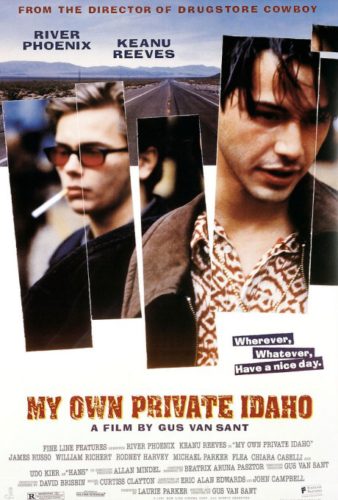SUBSCRIBE TO THE FREE NEWSLETTER
Thank you!
Your support allows us to publish more poetry, fiction, in-depth journalism, and fantastic photography online at Cascadia Magazine — as well as funding this daily newsletter, where you’ll find links to fascinating stories from across the Cascadia bioregion.
If you’d still like to make a contribution, it’s not too late. Visit our donate page and make a gift at any level you’re comfortable with. Monthly or recurring annual donations are a great way for us to build stability and pay our writers and photographers a fair rate for their work.
And thanks for caring about the region you live in. –Andrew Engelson
Now online at Cascadia Magazine: Spokane’s thriving art scene
Spokane, Washington is having a moment: new restaurants, bars, and businesses are popping up, and the city is suddenly keeping and attracting artists. In a feature at Cascadia Magazine, Carrie Scozzaro looks at arts organizations Terrain, Spark Central, and Laboratory that are building a creative community in the Lilac City. Read more here.
Feds ignore conservation deal in northeast Washington
The Spokesman-Review reports that the US Forest Service has thrown out a deal years in the making between environmental groups and timber companies to protect new wilderness areas in the Colville National forest. What was supposed to be 200,000 acres of protected land has now shrunk to just 60,000.
Rents continue to climb in Vancouver
Despite a building boom in Vancouver, housing rental rates continued to climb over the past year, CBC reports. Meanwhile, the Portland Tribune reports on how Portland is preparing to apply for an influx of new affordable housing after a $653 million regional housing bond passed in November.
US government to sue over Hanford health benefit
According to the Seattle Times, the US Justice Department will sue the state of Washington over a new law that requires health care compensation for workers injured or made sick by the cleanup of the Hanford nuclear site.
BC First Nations in debt after wildfires
CTV reports that British Columbia First Nations are deep in debt after contracting firefighters to protect homes and other buildings during intense wildfires in 2017 and 2018. The bands are still waiting for promised compensation from the federal and provincial government. In related news, the US federal government is moving forward on plans to build temporary housing for tribal groups that have seasonal fishing rights on the Columbia River. And the South Seattle Emerald reports on how Seattle tribal groups are drawing attention to the issue of missing and murdered Indigenous women.
Vancouver’s Hootsuite celebrates 10 years + fighting for pinot
The Georgia Straight reports on the 10-year anniversary of one of Vancouver’s most successful tech companies — the social media dashboard Hootsuite. Meanwhile, Microsoft CEO Bill Gates is pushing a huge renewable energy fund, but says limits on greenhouse emissions will also be necessary to turn the corner on climate change. And in other business news, Oregon wineries are banding together to fight California vintners who label their wines “Oregon pinot noir.”
Support grows for ferry between Vancouver, WA and Portland
OPB reports on growing support for the Frog Ferry, a passenger-only ferry across the Columbia River between Vancouver, WA and Portland. In other transit news, Crosscut has a video exploring whether Seattle-area Sound Transit can build new light rail lines without displacing low-income and minority residents.
The mystery of eastern Oregon’s yellow cedars
Over at High Country News, Sarah Gilman has a fantastic feature on how biologists are unlocking the mystery of why a grove of yellow cedars is found in eastern Oregon — when the tree usually prefers the wet, cold ecosystems of southeast Alaska.
The troubled princes of 90s Portland
Oregon Arts Watch has an essay by Brian Libby exploring the significance of two troubled artists who defined Portland in the 1990s: Elliott Smith and River Phoenix. Years after their deaths, the singer-songwriter and actor best known for his role in My Own Private Idaho are still potent in Portland despite gentrification. In other dead Cascadia icon news, The Ringer has the detailed story behind Nirvana’s legendary Unplugged performance on MTV.
Poetry by Floyd Skloot
Oregon poet Floyd Skloot has two poems online at The American Journal of Poetry: “Spills” and “Waiting” — two observations of illness as his mother and grandfather faced death:
“In bright light his milky eyes turned so blue
I thought his mind was holding only sky.”
Read the full poems online here.

